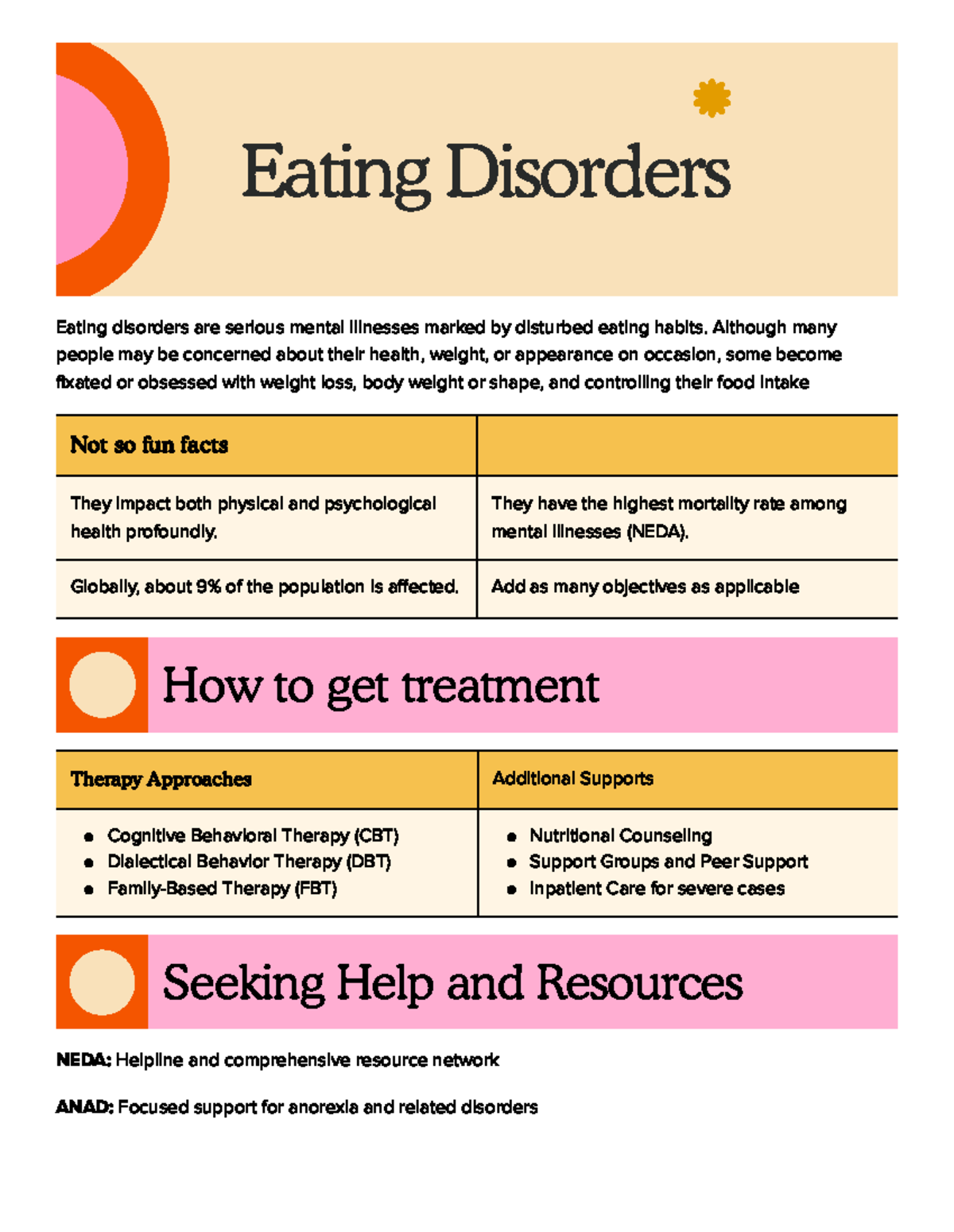Eating disorders are serious mental illnesses characterized by abnormal eating habits that can severely affect both physical and mental health. These disorders often lead to dangerous patterns of weight control and food intake fixation. According to the National Eating Disorders Association (NEDA), eating disorders have the highest mortality rate among mental illnesses, affecting approximately 9% of the global population.
There are several effective treatment options available for individuals struggling with eating disorders. Cognitive Behavioral Therapy (CBT) has shown to reduce symptoms in many patients by helping them change negative thought patterns related to food and body image. Studies reveal that 60% of participants experience significant improvement after completing a full course of CBT.
Dialectical Behavior Therapy (DBT) focuses on teaching coping skills and emotional regulation. This approach has been particularly effective for those with binge eating disorders, with research indicating a 50% reduction in binge episodes after a six-month DBT program.
Family-Based Therapy (FBT) is another critical treatment option, particularly for adolescents. FBT involves the family in the recovery process, helping them support their loved one in restoring healthy eating patterns. Evidence suggests that FBT can lead to recovery rates of 75% for young patients within a year.
Nutritional counseling plays an integral role in recovery as well, equipping patients with the knowledge to make healthier food choices. Registered dietitians work with patients to create tailored meal plans, often resulting in improved nutritional intake and better overall health outcomes.
Support groups and peer support are invaluable resources for those in recovery. These groups foster a sense of community and understanding, where individuals can share their experiences and strategies for coping. Reports show that participation in support groups can enhance recovery rates by up to 40% compared to those who seek treatment alone.
For severe cases, inpatient care may be necessary. Inpatient programs provide a structured environment where individuals receive round-the-clock medical and psychological support. Data from treatment centers indicate that patients who complete inpatient programs report a 70% recovery rate within six months.
It is crucial for individuals struggling with eating disorders to seek help and access available resources. Organizations like NEDA offer helplines and comprehensive resource networks to guide those in need. The Anorexia Nervosa and Associated Disorders (ANAD) organization specifically focuses on providing support for individuals with anorexia and related disorders.
In summary, eating disorders require immediate attention and intervention. Through evidence-based therapies, nutritional counseling, and robust support systems, individuals can find pathways to recovery and regain control of their health and well-being.



